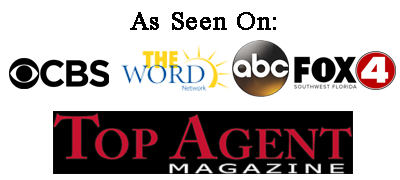
Closing Costs: What Every Homebuyer Should Know
Closing costs are an important aspect of the home buying process that every prospective homeowner should be familiar with. While it’s exciting to have the possibility of finding your new home, understanding closing costs can prevent surprises and ensure a smoother transaction. Let’s delve into what closing costs entail and why they matter.
What Are Closing Costs?
Closing costs are the fees and expenses associated with finalizing a real estate transaction. These costs are typically paid at the closing table when the property officially changes ownership. While the specific fees vary depending on factors such as location, property type, and lender requirements, common closing costs include:
Loan Origination Fees:
Charged by the lender for processing the loan application and underwriting the mortgage.
Appraisal Fee:
Covers the cost of a professional appraisal to assess the value of the property.
Title Search and Insurance:
Ensures that the title to the property is clear of any liens or encumbrances. Title insurance protects both the lender and the buyer against any title defects that may arise in the future.
Home Inspection:
Though technically optional, a home inspection is highly recommended to identify any potential issues with the property before closing.
Recording Fees:
Charged by the local government to record the sale and transfer of the property’s title.
Escrow Fees:
Covers the cost of setting up an escrow account to hold funds until all conditions of the sale are met.
Property Taxes:
Prorated property taxes may be due at closing, depending on the timing of the transaction.
Homeowners Insurance:
Lenders typically require homeowners’ insurance to protect the property against damage or loss.
Why Closing Costs Matter
Understanding closing costs is crucial for several reasons:
Financial Preparedness:
Closing costs can add up to thousands of dollars, so it’s essential to budget for these expenses in addition to your down payment and monthly mortgage payments.
Negotiation Leverage:
In some cases, closing costs can be negotiated between the buyer and seller. Being knowledgeable about closing costs gives you leverage during negotiations and can potentially save you money.
Closing Disclosure Review:
As a homebuyer, you will receive a Closing Disclosure document outlining all closing costs three days before the closing date. Reviewing this document carefully allows you to verify the accuracy of the fees and address any discrepancies before the final signing.
Avoiding Surprises:
By understanding closing costs upfront, you can avoid last-minute surprises and ensure a smoother closing process.
How to Prepare for Closing Costs
To prepare for closing costs:
Research:
Familiarize yourself with common closing costs in your area and consult with your real estate agent or lender for specific details related to your transaction.
Budget:
Factor closing costs into your overall home buying budget to ensure you have the necessary funds available at closing.
Ask Questions:
Don’t hesitate to ask your real estate agent or lender about any closing costs that you don’t understand. They are there to guide you through the process and provide clarification as needed.
SUMMARY:
Closing costs are an integral part of the homebuying process that every prospective homeowner should understand. By familiarizing yourself with closing costs, you can better prepare financially, negotiate effectively, and ensure a smoother transition into homeownership. So, before you embark on your homebuying journey, take the time to educate yourself about closing costs—it’s an investment that pays off in the long run.




